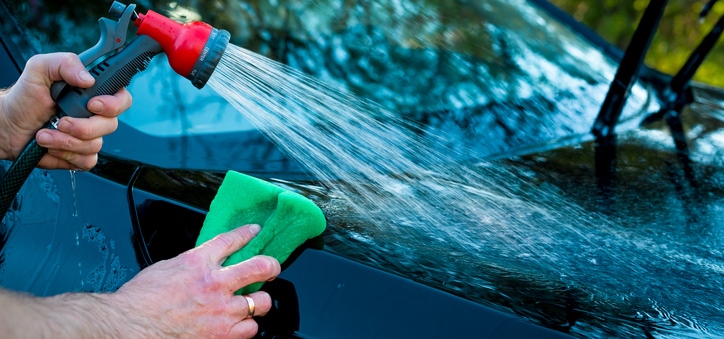End ‘fountain for profit’ call
Water may seem as natural and â€free’ a resource as they come – it falls from the sky after all, and it’s essential to all forms of life. But in the UK and increasingly around the world, water has become big business.
Bosses of the UK’s nine privatised water companies together took home nearly £60m in salary, bonuses, pensions and other benefits over the last five years, recent research has shown.
Over the same five-year time period, shareholders in the same nine water companies trousered ÂŁ6.5bn in dividends and interest payments; last year, these shareholders got a ÂŁ1.5bn windfall.
While shareholders are swimming in cash, ordinary families are hit by ever increasing household bills – customers’ water bills alone have ballooned by 40 per cent above the rate of inflation since 1989, when water was first privatised.
But skyrocketing bills haven’t brought with them exemplary customer service – in fact much the opposite. Britons are faced with a deteriorating water system creaking – and very literally leaking –from underinvestment.
Amid this summer’s worst heatwave in decades, United Utilities threatened to impose a hosepipe ban earlier this month because of the hot and dry weather. This is the same company that wastes 400m liters of water every day because of leaky pipes, but nonetheless last week awarded its shareholders £181m in dividends, the largest pay-out in a decade.
According to Ofwat, the water regulator, water companies failing to prepare for last winter’s cold snap left 200,000 people without water for at least four hours, and a  further 60,000 people experienced disruption for at least 12 hours, with some experiencing even longer disruptions.
Public support for nationalisation
There’s no doubt that the UK’s water system is broken, and the vast majority of the public believe so too. In a landmark poll last year, 83 per cent of respondents said they thought water should be brought back into public ownership.
The Labour Party agrees and has put nationalisation of public goods such as water and railways at the heart of their manifesto. Yet despite widespread public support of renationalisation, Tories and the media have panned such policies, claiming they would be too expensive.
But a new video by campaign group â€We Own It’ highlights why, exactly, the naysayers are wrong.
Parliament can decide how much to compensate shareholders when we take our water into public ownership. How much do you think we should pay?
(Watch the full video here: https://t.co/6DHxUU8cDo)#SplashMob #OwnOurWater pic.twitter.com/y3uV6qaduK— We Own It (@We_OwnIt) August 4, 2018
The water industry has said that renationalising water would cost the taxpayer ÂŁ90bn, but As We Own It founder and director Cat Hobbs explains, this figure is way off the mark. It can, in fact, be reduced to a cost of virtually zero, when various factors are taken into account. For example, Parliament can actually decide how much to compensate shareholders, based on their assessment of the public good.
‘We don’t owe shareholders a penny’
Hobbs points out to that the market value of the water industry is set at ÂŁ37bn, but this is an inflated figure based on the fact that water companies have been â€ripping off’ consumers for decades. Shareholders have only put in about ÂŁ14bn and, if we include the ÂŁ12bn subsidy taxpayers had given the industry in 1989 when it was first privatised, what â€we’ owe â€them’ is reduced even further.
The remaining £2.3bn can be further decreased to zero considering the damage the privatised water industry has wrought – from polluting the environment to dodging tax to handing massive salaries to CEOs, all the while unfairly hiking water bills by 40 per cent and accumulating a £42bn pile of debt that the government will have to sort out.
“If anything, [the water industry] should be compensating us,” Hobbs said.
“Water is not an investment opportunity,” she added. “It’s a basic need, an essential of life, a public service. It should never have been privatised in the first place, and we don’t owe the shareholders a penny.”
Unite acting national officer for utilities Peter McIntosh agreed.
“Unite fully supports the â€We Own It’ campaign to renationalise the water industry,” he said. “Time will soon be up for the highly paid bosses and shareholders who have ripped off the hard pressed consumer for too long.”
“Water is an essential of life and should not be used as a fountain for private profit.”
Find out more about We Own It’s water campaign here.
 Like
Like Follow
Follow

